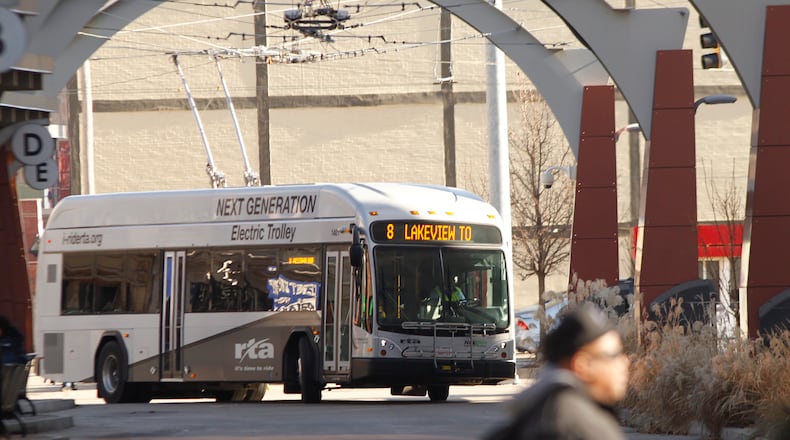1. High school and college students
Bus service for Dayton Public Schools high school students is provided by RTA, meaning a strike would force about 1,000 students to seek ways to get to school.
DETAILS: DPS, Sinclair weigh in on possible Dayton RTA strike
DPS spokeswoman Jill Drury said, “The district is considering every alternative available to students who currently ride the RTA to and from school, and would be affected should a strike occur.”
Officials with Sinclair Community College are also monitoring the negotiations.
2. Disabled citizens and nonprofits
About 60 disabled persons receiving services at United Rehabilitation Services of Greater Dayton will be impacted — meaning those persons will not receive services and the nonprofit will lose thousands in daily operating revenue, officials said.
MORE: Dayton RTA Strike threatens disabled persons
Officials with Goodwill Easter Seals Miami Valley are also monitoring the situation.
3. Local workers and employers
Staffing service executives said “hundreds” of employees will be stranded from their manufacturing and small business jobs Monday, if a settlement is not reached.
DETAILS: RTA strike would strand 'hundreds' of Dayton workers
“We’re trying to brainstorm solutions, but the best-case solution is the sides can come to an agreement and there’s no work shortage,” said Doug Barry, president of local workforce firm Barry Staff. “If we can’t come together, there will be a lot of companies in Dayton who don’t have employees.”
4. Dayton RTA employees
RTA employees — both union and non-union — would suffer under a strike. Union employees who do not work would lose wages, while employees who remain at work could be required to take on different jobs and work shifts to provide critical RTA services.
MORE: Executives will drive Dayton RTA buses if strike hits
Even executives would be forced to take on different jobs under RTA’s strike plan. Several “c-level” executives are on a list of approved employees who might drive buses during the strike.
5. Taxpayers
RTA operates using a mix of local, state and federal tax dollars — and both sides have acknowledged a strike would adversely impact citizens footing the bills. CEO Mark Donaghy said the taxpayers would lose under a plan proposed by the union, while union leaders allege the system doesn’t properly manage taxpayer dollars.
“I truly do apologize for the taxpayers who are paying for this service and this service is being withheld unjustly,” said Amalgamated Transit Union Local 1385 President Glenn Salyer.
MORE: Dayton RTA chief, union leader agree: They don't like each other
About the Author
